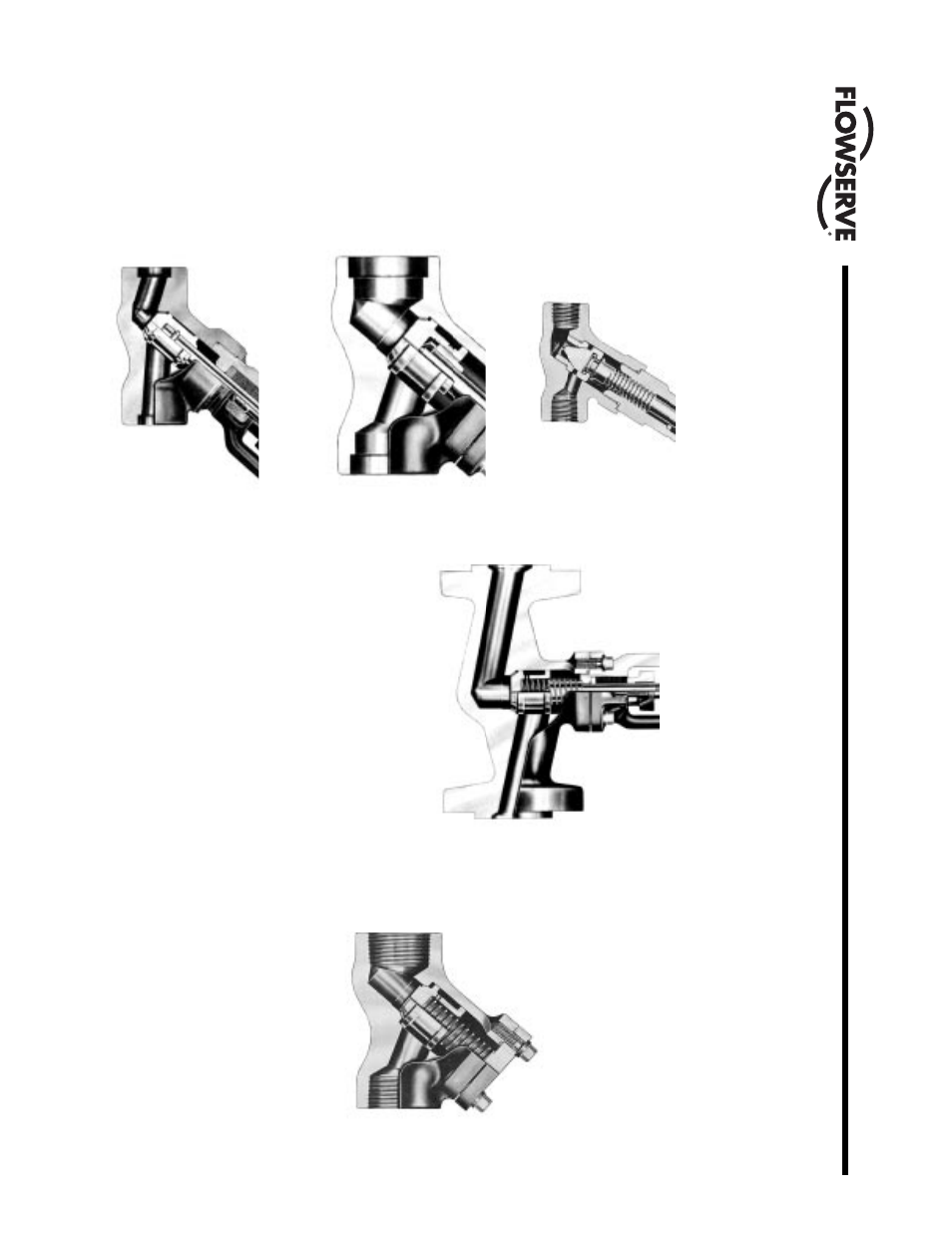Disks and disk t ack w elds – Flowserve V-376 R4 Edward Valves User Manual
Page 6

7
Flow Control Division
Edward V
alves
Disks
In all Edward valves, disks are designed to
swivel on the valve stem. They are held in
place by either a “T”-slot connection, a
disk nut, or Stellite wire.
T-slot Construction
Disk Nut Construction
Stellite W
ire Construction
Stop-Check valve disks are not attached to
the stem and respond to the fluid flow in
the same manner as check valve disks
(see below). The disk seating face can be
repaired in a similar manner to that
described for seats.
Fig. 846
Typical Stop-Check V
alve with Body-Guided Disk
V
alve stems are nor
mally provided with a
radius at the disk contact to give center
loading. If foreign material gets between
this spherical sur
face and the disk, or if
galling occurs, it may not be possible to
close the valve tightly
. In a leaking valve
this contact should be checked, if possible,
to be sure it is in proper condition.
Disk T
ack W
elds
In body-guided valve disks with disk nuts,
the disk nut is secured to the disk by a
small weld through the side of the disk,
fusing the disk nut threads and preventing
loosening of the disk assembly in ser
vice.
Such disks can easily be disassembled if
required by drilling out the fused material
at the bottom of the small hole in the disk.
The disk nut can then be unscrewed for
ser
vicing. Care must be taken not to drill
through the disk nut wall or the stem may
be damaged. When repairs are complete,
the par
ts can be reassembled with care
being taken to screw the disk nut down
until only a few thousandths of an inch in
end play remain in the assembly
. The par
ts
can then be lock-welded again by deposit-
ing weld metal at the bottom of the small
hole in the disk.
Fig. 838
Bolted Cover Piston Check
V
alves may be body-guided by rings on
the disk or in the case of “T”-slot disks by
the disk outside diameter
. A similar body-
guiding arrangement may be found in
check valves. Some ball check valves are
guided by an extension of the cover (see
Fig.
160). The wear on sliding sur
faces
inside valves should be considered and the
sur
faces checked to be sure wear has not
resulted in ridges in the guide bore, which
might impair disk movement. Guiding in
check valves is par
ticularly critical.
Disks and Disk T
ack W
elds
Disk
Nut
Construction
-
Bolted
Bonnet
Valves
-
Pre
1991
Disk
Nut
Construction
-
All
Univalves
and
Post
1991
Bolted
Bonnet
Valves
